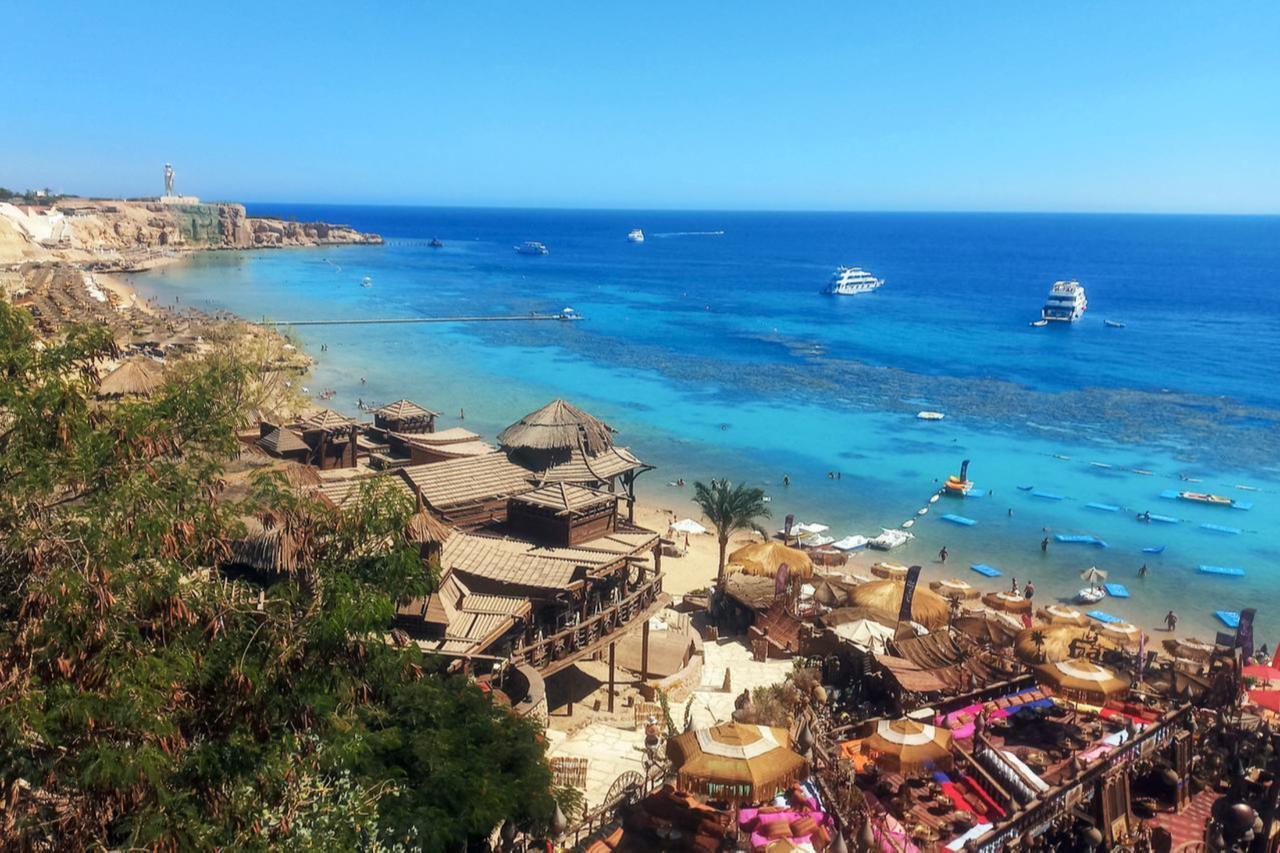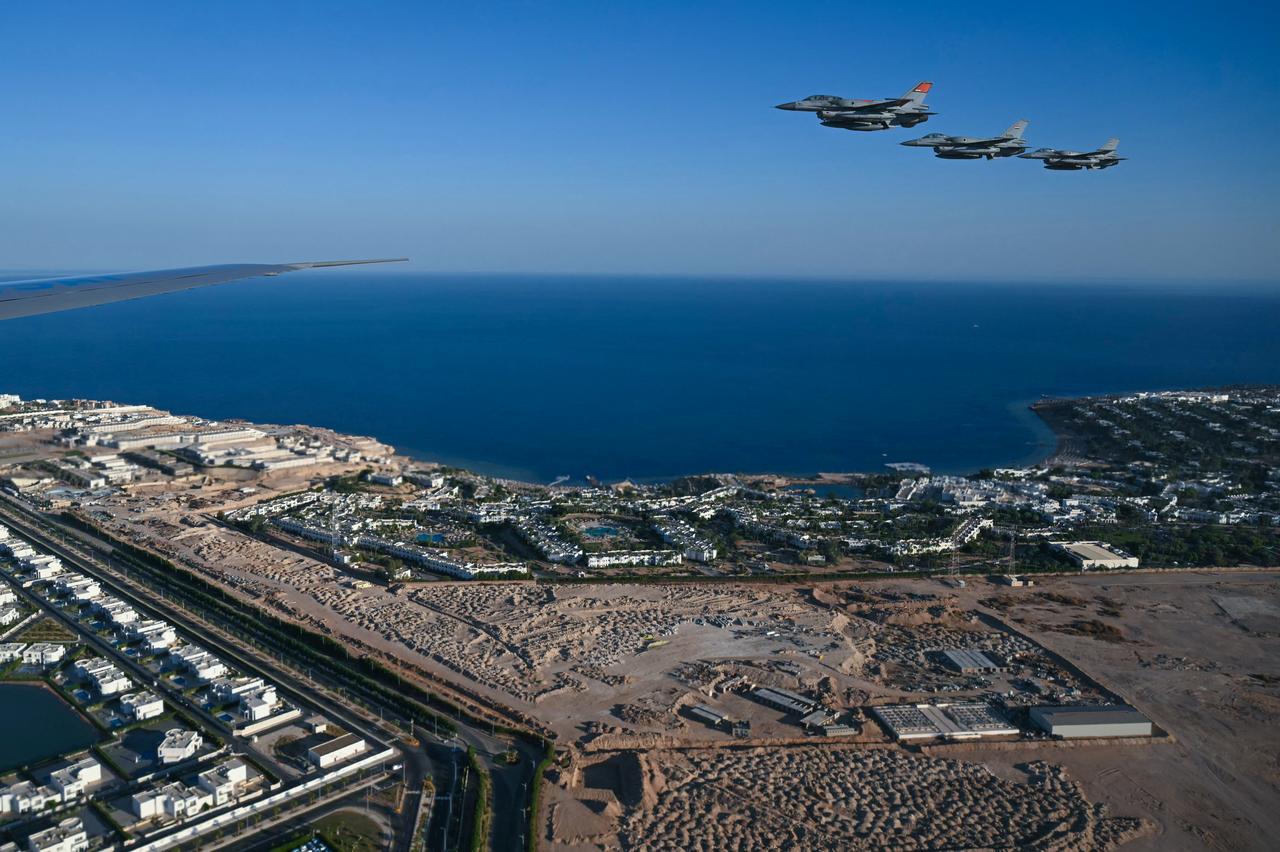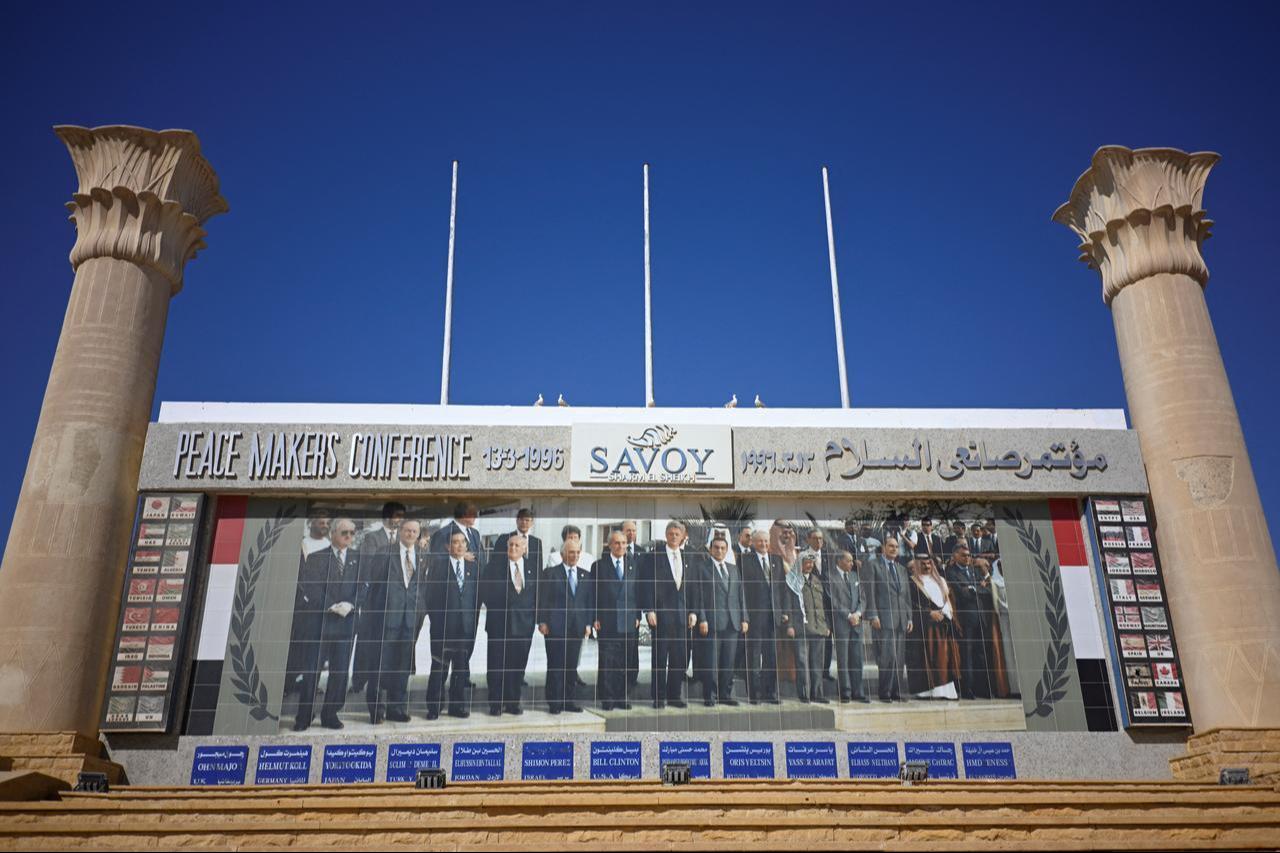
The Egyptian resort city of Sharm el-Sheikh once again took center stage in Middle East diplomacy as it hosted the “Sharm el-Sheikh Peace Summit.”
Sharm el-Sheikh is the largest city in Egypt’s South Sinai Governorate and is distinguished by its strategic location between the mountains of the Sinai Peninsula and the waters of the Red Sea.
During the 1967 Six-Day War, Israel occupied the city and established a settlement there.
Egypt regained control in 1982 and has since given Sharm el-Sheikh special significance within its national development and tourism strategies.

Sharm el-Sheikh has long served as a symbolic platform for dialogue and reconciliation.
Over the past decades, it has hosted numerous Arab-Israeli negotiations, regional summits, and international peace conferences, earning the title of “the city of peace.”
Sharm el-Sheikh’s status as “the city of peace” was reinforced during the tenure of the late Egyptian president Hosni Mubarak.
From his official residence in the city, he hosted numerous Middle East peace summits to strengthen Egypt’s regional influence.
In Middle Eastern history, the city has long served as a trusted venue for negotiations seeking to resolve conflicts and promote regional stability
At the opening of the “Peace Makers Summit” in Sharm el-Sheik in 1996, President Bill Clinton said, “From all around the world, we have come to the Sinai to deliver one simple, unified message: Peace will prevail.”
Observers see that its selection reflects not only Egypt’s pivotal diplomatic role but also the city’s strategic and symbolic status.
The Red Sea resort’s tranquil atmosphere and advanced infrastructure have made it a preferred location for high-stakes diplomacy.
Starting from the 1999 Wye River follow-up talks to various Palestinian-Israeli ceasefire discussions.

There are several narratives regarding the origin of the city’s name.
The word “Sharm” in Arabic means a small gulf or narrow bay, which reflects the city’s geographical form that resembles a small inlet or gulf.
The second part of the name, “el-Sheikh,” is believed to refer to a Bedouin tribal leader who once lived in the area in ancient times, and thus the place came to be known as Sharm el-Sheikh.
Another account suggests that the word “Sharm” is of Hebrew origin, meaning “a cleft in the mountain,” while “el-Sheikh” refers to a Bedouin sheikh who resided in the region.

In March 1996, the “Peacemakers’ Summit” brought together leaders from 31 countries, including Bill Clinton, Yasser Arafat, and Shimon Peres, in an effort to rescue the peace process and curb rising violence in the region.
Three years later, delegations returned to the city for the Wye River II Agreement, aimed at resolving outstanding issues between the Palestinians and Israelis.
In 2000, Sharm el-Sheikh once again hosted peace talks under the patronage of President Hosni Mubarak and U.S. President Bill Clinton.
In 2003, the city became the center of Arab decision-making during the 15th Arab League Summit, which discussed the imminent U.S. invasion of Iraq.
The 2005 summit marked another milestone, gathering Mubarak, King Abdullah II, Mahmoud Abbas, and Ariel Sharon.
It concluded with the declaration of an end to the Second Intifada and a renewed commitment to the “Road Map for Peace.”
Sharm el-Sheikh did not limit itself to politics. In 2009, it hosted the 15th Non-Aligned Movement Summit with the participation of 118 countries.
The following year, in 2010, the city welcomed another attempt to revive Palestinian-Israeli talks, attended by Hillary Clinton and U.S. envoy George Mitchell.
In 2015, the city once again captured global attention with the Egypt Economic Development Conference, followed that same month by the 26th Arab Summit.
In the years that followed, Sharm el-Sheikh grew into a global hub for major international gatherings.
It hosted the World Youth Forum in 2017 and 2018 and later the U.N. Climate Change Conference (COP27) in 2022, which reaffirmed the city’s global prominence.
In March 2023, delegations from Israel, the Palestinian Authority, Egypt, Jordan, and the United States met there for a security summit aimed at halting the escalating violence in the Palestinian territories.
Finally, in 2025, Egypt reaffirmed its historic role as a regional mediator committed to stability and peace by hosting the “Sharm el-Sheikh Peace Summit.”
The city once again made international headlines after facilitating indirect talks to end the Gaza war, where the parties reached an agreement paving the way toward a lasting ceasefire.
As the Sharm el-Sheikh summit closes, the world once again turns to this Red Sea city—a place that has witnessed wars and peace.
The summit, co-chaired by Egyptian President Abdel Fattah al-Sisi and U.S. President Donald Trump, convened on Monday evening at the Sharm el-Sheikh International Conference Center.
The summit brought together leaders from over 20 nations who gathered to discuss an end to the war in Gaza and chart a path toward regional stability.
According to a statement from the Egyptian presidency, the summit aimed to “end the war in the Gaza Strip, reinforce peace efforts, and open a new chapter of security and regional stability.”